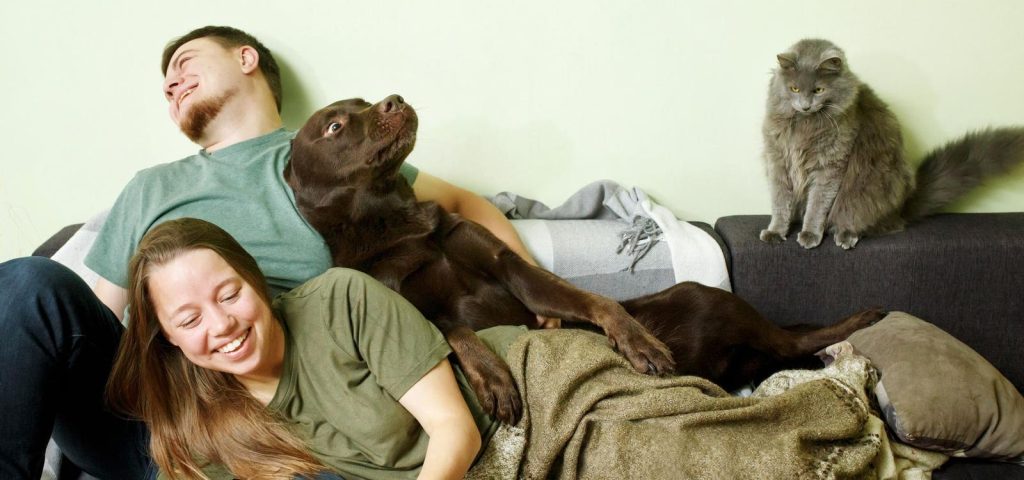Studies suggest that dog and cat parents are night-and-day when it comes to personality and attachment. This begs the question: can cat people and dog people forge successful romantic bonds?
In broad personality assessments, research shows that cat people are less extroverted, agreeable and conscientious than dog people, and more neurotic. While it’s known that dog owners generally report higher levels of well-being than cat owners, the compatibility of these contrasting personalities in romantic relationships remains a subject of controversy.
To tackle this debate, let’s dive into the character differences between cat and dog people, and how these differences might turn into complements, not complications, in a romantic relationship.
Personality Differences: The ‘Black Cat And Golden Retriever’ Dynamic
A study published in the Human-Animal Interaction Bulletin attempted to uncover differences in cat and dog owners’ on 16 different personality factors. While the study was consistent with most other studies on the matter, the researchers were able to add nuance to the known personality differences between cat and dog owners.
Specifically, cat and dog owners differed in eight ways. Based on their findings, the authors described cat people as “shy, solitary, impersonal, serious, and nonconformist, but also creative, sentimental, independent and self-sufficient.” On the other hand, dog people were described as “grounded, pragmatic, and dutiful, as well as warm, outgoing, sociable, expressive and group-oriented.”
Despite their differences, there’s potential for these two contrasting types to find a sweet spot in a romantic relationship. Cat enthusiasts, characterized as shy, independent and nonconformist, bring a creative and self-sufficient edge to the table. In contrast, dog lovers, known for their warmth and sociability, offer a grounded and expressive dimension.
The beauty in such relationships lies in the potential for growth through mutual understanding and learning. Cat people can inspire their dog-loving partners to appreciate solitude and embrace their creative side, while dog lovers can encourage their feline-friendly counterparts to find warmth in social connections.
By embracing each other’s unique qualities and working together, these differences can become strengths, forging a relationship enriched by a fusion of creativity and sociability, independence and togetherness.
Attachment Differences: The ‘Garfield And Odie’ Love Style
One study attempted to delineate attachment style differences between cat and dog owners, both with their pets and partners. The researchers found that dog owners reported less anxiety in their romantic relationships and less avoidance with their pets than cat owners.
While this may sound foreboding, these differences could allow for a complementary relationship dynamic, potentially protected from issues like codependency, wherein partners tend to lose their sense of self for the sake of the relationship.
Since dog owners tend to have lower anxiety and avoidance in their human and animal relationships, they may be more able to form strong, companionable bonds, making them skilled at nurturing connections.
However, cat owners, with potentially more attachment anxiety, bring a unique viewpoint to romance. Their preference for independent pets hints at an appreciation for personal space and individuality. This can be an asset in a relationship, fostering mutual respect for boundaries, self-sufficiency and individuality.
The key to success lies in recognizing and appreciating these different strengths and working together to create a balanced and harmonious partnership that brings out the best of both types. In this way, the differences between cat and dog owners can become assets that elevate a relationship.
Conclusion
Cat and dog parents can be like two puzzle pieces falling perfectly into place. Cat lovers can inspire their partners to enjoy some alone time and explore their creative side. Dog lovers can nudge their cat-loving counterparts to embrace social connections and share the warmth. In this mix of “me-time” and “we-time,” these couples can find a balance that makes their relationship uniquely fulfilling.
Read the full article here










